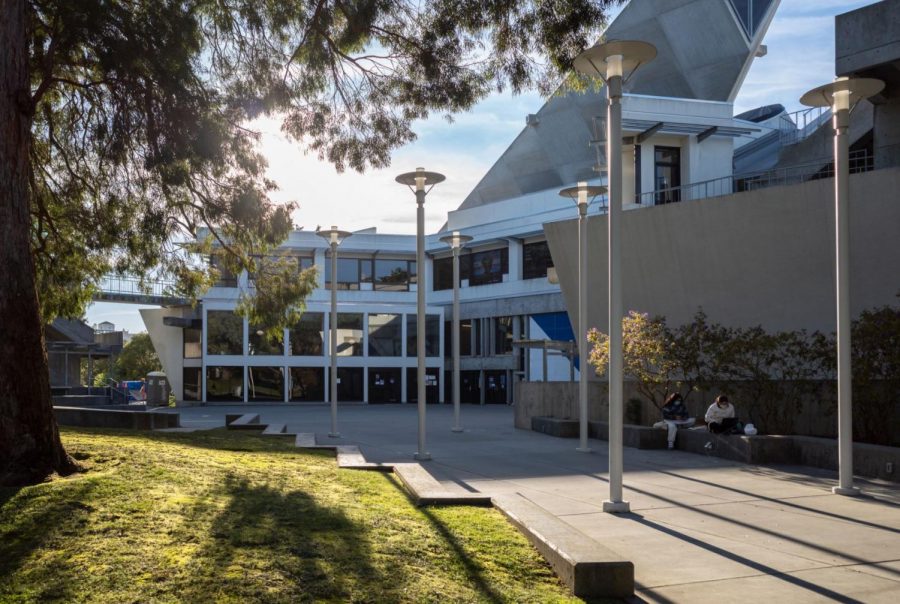Edee Huff remembers her time as a resident assistant in Mary Park Hall & Mary Ward Hall at SF State student housing, where she loved making her residents feel welcome. However, in the summer of that year, she reported that her boss discriminated against her due to a personal dislike for Huff and ensured that she could not complete certain aspects of her responsibility as an RA.
Huff planned programs that her boss would need to approve, and it was then his job to provide her with the materials. Oftentimes, the materials were not given to Huff — her area coordinator would later report that she did not follow through with her responsibility of hosting a program.
Huff had also won RA of the month in April 2018, being chosen over from 60 different RAs. Her residents voted for her, and she was overjoyed. But at that month’s staff meeting, they did not announce her as the winner nor pass out the award.
She was told in March 2018 that Residential Life would not be rehiring her due to her not being a team player.
“What’s frustrating is at the beginning of this, I didn’t really see it as discrimination,” Huff said.
A California State University-provided lawyer told her they could not look further into her case until she filed under Title IX, prompting her to file a claim that she said the office has not given proper attention. Huff filed her intake application in June 2018 and did not hear back from the Title IX office until October.
Created by the Department of Education in 1972, Title IX is a federal law that prohibits discrimination based on sex in all federally funded schools and colleges. Beyond protecting students and faculty from discrimination, the law also addresses sexual and domestic abuse.
Title IX has been revised over the years by various presidential administrations, with each directing any federally funded schools on how to interact, investigate and deal with cases filed under Title IX. But a mix of changing federal policy, exacerbated by the pandemic, has made it difficult to not only track and report these incidents, but also to determine the length of the investigation process.
According to SF State’s annual reports on its Title IX website, there have been a total of 73 discrimination cases reported since 2019; 69 of those cases were resolved without further investigation. During the 2017-2018 school year, the number of cases was 117, increasing to 169 in 2018-2019.
According to Heather Borlase, SF State’s Director of Equity Programs & Compliance, this trend has reversed under the pandemic. “I can say generally that the number of reports have dropped since campus shifted to distance learning and many staff moved to telecommuting,” she said.
Huff and her lawyer emailed and phoned the Title IX office eight times in hopes of contacting someone about her case. Huff said the lack of response made her feel isolated from the university, that it wasn’t taking her problems seriously. According to Borlase, however, the process is more difficult than most anticipate.
“Sometimes there are many incidents that we uncover in the course of doing an investigation that involves the same respondent,” she said. “As the university, we have an obligation to look into all of them, so that can lengthen things.”
The Title IX office has a 60-day policy, which is a period in which, ideally, one would be able to investigate an entire case. But during the investigation process, phone calls can go unanswered, emails do not get replied to, and numerous other hiccups in the case can cause its length to increase.
The university follows two policies rooted in Executive Order 1096/1097. According to Borlase, “They establish that all students have the right to participate fully in CSU programs and activities free from discrimination, harassment, and retaliation.” These orders establish that all CSU’s prohibit any form of harassment, including sexual misconduct and stalking to name a few. Violation of the prohibited acts infringes on the universities’ policies and may potentially defy state or federal law.
New Trump-era executive orders pertaining to Title IX went into effect on April 14, 2020, two years after Huff filed her claim with the office. Secretary of Education Betsy Devos, who first published the executive orders in 2017, affirmed the administration’s intent to change the guilt standard — shifting away from the preponderance standard to a “clear and convincing” according to Jeannie Suk Gersen, a writer at The New Yorker. This shift essentially tilts favor for the accused, as the victim must prove that harm was actually committed.
These orders also establish that any and all sexual activity must be based on “affirmative consent” between members of the campus community (this includes staff and faculty). Engaging in any activity without first obtaining affirmative consent is considered sexual misconduct and is in violation of CSU policy.
“The Department of Education, under Betsy Devos, passed new regulations saying that if you are an educational institution that is receiving federal funds, you must include this hearing process and adopt our definitions in order to maintain your funding,” Borlase said.
This is a vast departure from the Dear Colleague Letter implemented during the Obama Administration. A Dear Colleague letter is a guidance document issued by a federal agency to help interpret existing laws and regulations. It was introduced by then-Vice President Biden, enlisting legal guidance on sexual violence and discrimination in schools and on campus. The 2011 DLCdiscourage informal resolution and mediation, but the new Trump-era rulings allow schools to use those options.
The Obama-era guidance also discouraged cross-examination specifically — the new ruling allows each party’s advisor to pose questions to the opposing party. According to the Binnal Law Group website, “This guidance document ultimately made it even easier for schools to prove that the accused student engaged in the sexual misconduct at-issue”
“It is too early to tell [the effect of Trump’s executive orders], as our office has not had a case go through the new process yet,” Borlase said.
For Huff, the prolonged wait time for a response from the Title IX office minimized her feelings and made her feel unheard. The length of investigations varies from case to case, depending on the severity of the claim. Even after a lengthy investigation, cases can be dismissed if not enough evidence of the harm caused can be produced.
Biden’s administration hopes to rework this by enforcing Title IX protections and educating students in high school, college and university. On March 8, the Biden administration issued an executive order for the Department of Education to review its current Title IX ruling circulated under Devos. The Department of Education has 100 days to review its current rulings and report back to the President.
On his campaign site, Biden promises to, “Expand requirements for comprehensive sexual assault, stalking, and dating violence prevention education on college campuses,” according to The Biden Plan To End Violence Against Women.
Borlase said she hopes to one day see a program at SF State covering such prevention education. She believes in the importance of educating all people about behavioral triggers, warning of an unsafe situation as well as conducting training of members of both sexes.
“A long-term goal of mine is to create and sustain a restorative justice program, everybody has a responsibility of keeping each other safe,” Borlase explained.
Restorative justice programs such as the ones Borlase described do exist, and they work to educate youth in abuse behavioral traits, respect, and other sex and love education.
Project SURVIVE is a sexual violence prevention peer-education program created at City College after students/faculty discussed the need for peer-to-peer education on such issues. Carpenter said it helped the campus develop a curriculum on a “popular education principle,” and then trained students to lead Project SURVIVE at city colleges campus and have grown over the years. Pre-covid, it was taught in about 180 City College’s classrooms, 220 San Francisco School District classrooms a year.
Adele Failes Carpenter is a City College Women’s and Gender Studies faculty member and the current coordinator of Project SURVIVE. The program was initially started 25 years ago by Leslie Simon, a now-retired Women’s and Gender Studies faculty member from City College. Simon taught the Women’s and Violence class which later become known as Politics of Sexual Violence, a class that Carpenter teaches.
“Out of that came a conversation about the need for peer-to-peer education on healthy relationship promotion, recognizing the signs of abuse, addressing and intervening on rape myths,” Carpenter explained.
In 2010, Project SURVIVE started a community collaboration with other anti-violence education organizations, called Expect Respect SF, a high school program and part of the SFUSD reproductive health curriculum called Be Real, Be Ready. Trained peer educators from Project SURVIVE teach the program’s “healthy relationship” component. It is currently taught in all SFUSD schools.











